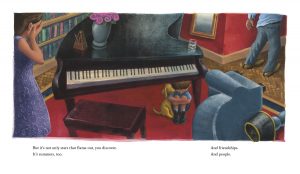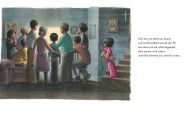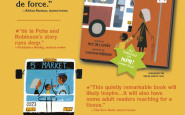Books As Tools
When I was a newer author I dreamed of writing a great novel. A great picture book. I dreamed of getting positive reviews, maybe even awards, and meeting readers who had been moved by my words. I think a lot of writers begin in this head space. We want to make something great so we can feel like worthy creators. Like worthy humans. It’s natural. We have read many wonderful books, and we want to affix our names to something wonderful, too.
But over time I have discovered the true value of a good book – even a great one. It’s a vehicle for conversation. Nothing more. But also nothing less. Because I believe book-induced conversation can lead to seismic shifts, both internally and externally. These conversations can take many shapes. They can be made up of a parent and a child. Or a teacher and a student. Or two friends. Some of the most profound take place inside the head of a single person. Why? Because great stories are usually complex. Right and wrong isn’t so easy to define. Moral lines are drawn in surprising places. The point is, physical books – the words and the pages that hold the words – do not come alive until humans enter the equation. And contrary to what I once believed, the most ideal position of the author in this equation is on the back of a milk carton.
True literature isn’t about the writer. It’s about the reader. It’s about readers.
In one of the spreads of my picture book LOVE (illustrated by Loren Long), an anxious boy hides under a piano, huddled with his dog, while his parents argue in the foreground. The simple text reads: “But it’s not only stars that flame out, you discover. It’s summers, too. And friendships. And people.” Loren and I have heard from so many educators around the country who, after reading LOVE aloud to the class, are approached by a student after class, privately, who points to that very spread, saying, “That’s me.” In all of these cases, the book may have prompted the young person to reach out in this way. But after the initial gesture it’s all about that kid and that teacher. And the conversation that follows. The shared experience.
People often ask me why I write for young people and not adults. Though I often just shrug off this question, the answer is actually pretty simple. Adults mostly read to reinforce their own ideologies. Conservative-leaning readers seek out conservative-leaning books. Progressive-leaning readers seek out progressive-leaning books. Young people are different. They’re still building their ideologies. As a result, they’re more open minded as readers. Young readers treat books as tools. Too often we adults treat books as a pat on the back.




